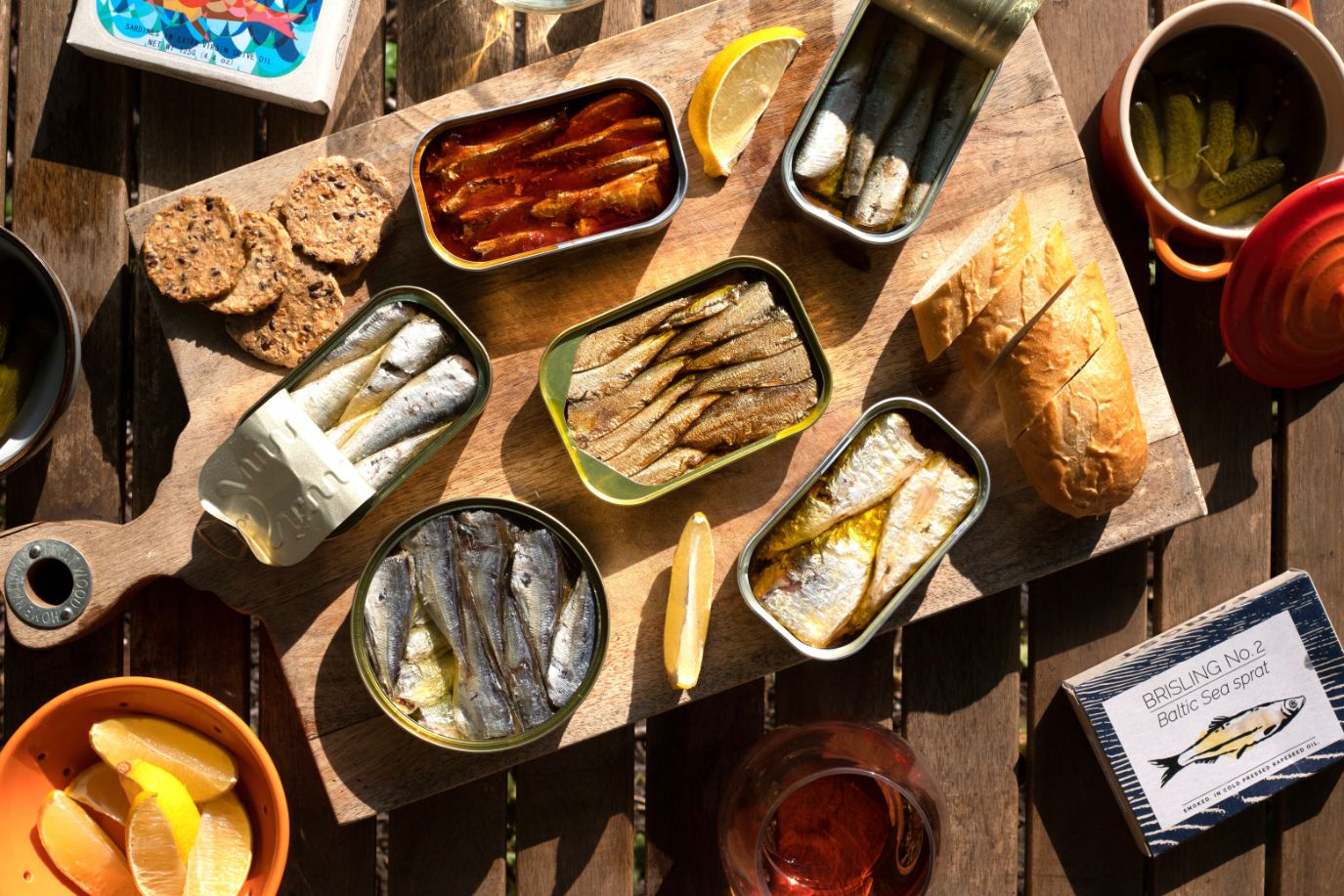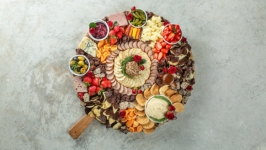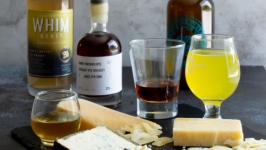Tinned Seafood
One more food trend to attribute to the pandemic – an appetite for tinned seafood. And I don’t mean your grandma’s tuna fish sandwiches. A recent report found that the canned seafood market is set to grow by $23.7 billion over the next five years. As people cooked more at home while restaurants were closed, they discovered how ingredients like conservas (fish or mollusks preserved in oil or broth and packaged in tin cans) could boost the flavor profile of their at-home meals. Now diners are looking for that same pop of umami when eating at restaurants, and local chefs are responding, finding ways to incorporate tinned seafood onto menus.
Preserving food in cans is not a new process: besides tuna, seafood such as salmon, anchovies and sardines have become familiar ingredients to many. So why have mussels, cockles, sprat and other tinned seafood found their way to local plates? “Tinned seafood is a vibe and people have been enjoying it all over the world for a long time,” says Kurt Rogers, managing partner and beverage director of Bar Molino, a Spanish wine bar and tapas restaurant in San Marco. “I’m glad to see the city start to embrace it, as it is such a versatile ingredient, packed with protein and loads of Omega-3’s.”
Because conservas are huge in Spain, “we plan to keep our shelves stocked with them so guests can order them off the menu or pick them up in our retail market,” says Rogers. “Serving choices are endless. Crack open a tin and have it on bread with some good Spanish wine. Drop some into your favorite pasta or salad. There is something really beautiful in its simplicity.”
If you’re ready to expand your tinned seafood vocabulary, look for items at Bar Molino and The Swinerie at 1538 Hendricks Ave, Falafel X Bar at 4162 Herschel St. in Jacksonville or BoVine at 88 Charlotte St. in St. Augustine for a wide assortment of fish and mollusk to tantalize your taste buds.










